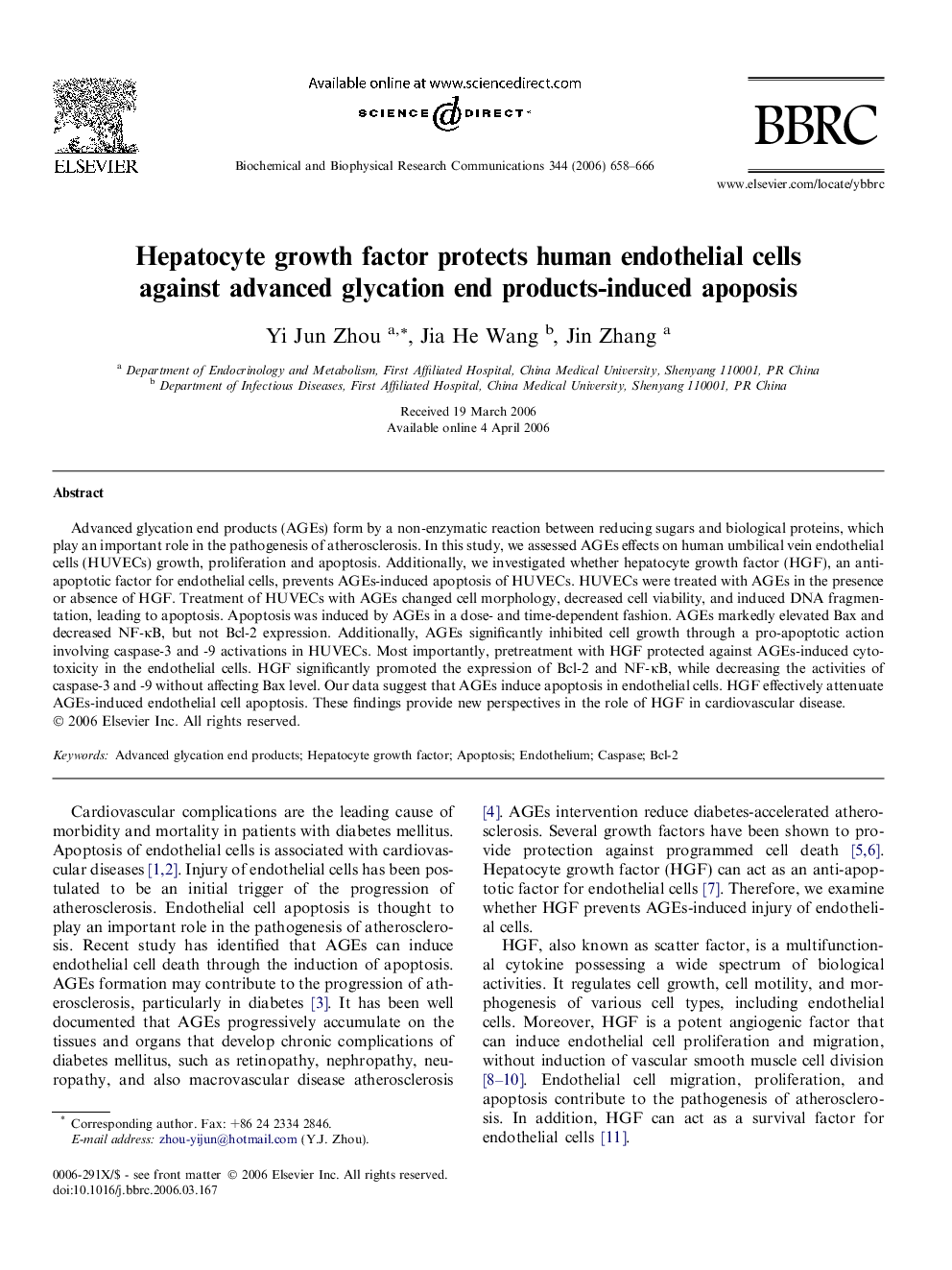| Article ID | Journal | Published Year | Pages | File Type |
|---|---|---|---|---|
| 1940845 | Biochemical and Biophysical Research Communications | 2006 | 9 Pages |
Advanced glycation end products (AGEs) form by a non-enzymatic reaction between reducing sugars and biological proteins, which play an important role in the pathogenesis of atherosclerosis. In this study, we assessed AGEs effects on human umbilical vein endothelial cells (HUVECs) growth, proliferation and apoptosis. Additionally, we investigated whether hepatocyte growth factor (HGF), an anti-apoptotic factor for endothelial cells, prevents AGEs-induced apoptosis of HUVECs. HUVECs were treated with AGEs in the presence or absence of HGF. Treatment of HUVECs with AGEs changed cell morphology, decreased cell viability, and induced DNA fragmentation, leading to apoptosis. Apoptosis was induced by AGEs in a dose- and time-dependent fashion. AGEs markedly elevated Bax and decreased NF-κB, but not Bcl-2 expression. Additionally, AGEs significantly inhibited cell growth through a pro-apoptotic action involving caspase-3 and -9 activations in HUVECs. Most importantly, pretreatment with HGF protected against AGEs-induced cytotoxicity in the endothelial cells. HGF significantly promoted the expression of Bcl-2 and NF-κB, while decreasing the activities of caspase-3 and -9 without affecting Bax level. Our data suggest that AGEs induce apoptosis in endothelial cells. HGF effectively attenuate AGEs-induced endothelial cell apoptosis. These findings provide new perspectives in the role of HGF in cardiovascular disease.
